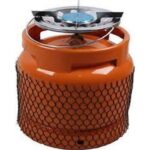In Nigeria, there are numerous low-cost business opportunities that require minimal startup funds, often less than N100,000. These ventures are accessible, scalable, and cater to everyday needs, making them viable for aspiring entrepreneurs.
In Nigeria’s current economic climate, starting a business is an uphill battle for many aspiring entrepreneurs. The rising cost of living, inflation, and economic instability have made it increasingly difficult for people to save or access the funds needed to pursue their entrepreneurial dreams. Even small amounts of capital, such as N100,000, can seem out of reach for the average Nigerian grappling with basic survival needs. The situation is further compounded by limited access to affordable loans, stringent lending conditions, and a lack of support for small businesses from financial institutions.
For most people, the lack of sufficient capital forces them to abandon ambitious business ideas and focus on more immediate, less resource-intensive opportunities. This is where the concept of settling for “low-hanging fruits” becomes relevant. These low-capital ventures often require little or no infrastructure, making them accessible to individuals who might otherwise struggle to raise funds. However, the decision to pursue these options often stems from necessity rather than choice, reflecting the harsh economic realities that constrain many dreams.
Navigating these challenges requires immense resilience, creativity, and adaptability. Entrepreneurs are compelled to think critically about how to make the most of limited resources, relying on personal skills, leveraging relationships, or turning hobbies into income streams. The difficulties are further exacerbated by the cost of essential business tools like electricity, transportation, and internet access, which remain high and unreliable.
Despite the bleak economic landscape, starting small has proven to be a lifeline for many. It offers a way to build experience, generate income, and create opportunities for growth. While the journey is fraught with challenges, it underscores the importance of resilience and the ability to turn even the smallest opportunities into stepping stones for a better future.
Low-hanging fruits
However, the need to generate income often pushes individuals to seek alternative routes, and this is where low-hanging fruits come in. These are business opportunities that require minimal capital, skills, or resources to launch but have the potential to generate steady income. Settling for these options may not always align with one’s long-term goals, but they provide a crucial stepping stone toward financial independence.
Low-capital businesses such as reselling items, offering simple services, or leveraging digital platforms to provide skills-based work are practical ways to begin. While these ventures might not be glamorous, they are accessible and offer a chance to learn the basics of entrepreneurship. They also create room for growth, allowing individuals to reinvest profits and gradually move toward bigger goals.
In a tough economic environment, the ability to recognise and seize low-hanging fruits can be the difference between stagnation and progress. While the journey may not be easy, starting small is often the most realistic way to build resilience, gain experience, and work toward a more significant vision.
Point of Sale business
Point of Sale service is considered one of the most lucrative side hustles to adopt. Even though some Nigerians have fully invested their capital and rely on it for primary income, it is still an effective way to earn some extra cash on the side.
A full-time PoS operator, Taiwo John, operating along Lotto, Ofada Bus Stop, told The PUNCH that, “Although the startup capital to venture into PoS business full time will cost about N250,000, if you are doing it as a side hustle with N50,000 to N150,000, you can start. If you are getting two terminals, you will need like N50,000; that’s about N25,000 each.”
According to him, for starters, consistency will play a big role in determining the success of the business.
“This business is about trust, so after getting your accessories for about N25,000, you need to get cash to run the business and make sure you are always available when customers need you. Above all, John states that as a business owner, “you must pay attention to your profit rather than just making sales.”
The point-of-sale business has rapidly spread through the rural areas as it is quite easy to start.
In fact, according to the National Bureau of Statistics, the number of registered PoS operators has grown over the years. In January, due to the cashless policy, point-of-sale transactions grew to N807.16bn, which signified a 40.69 per cent year-on-year increase from the N573.72bn transactions that were done in January 2022. This is a clear indicator that the PoS business is lucrative and there is a demand for the service.
Perfume business
The perfume oil business is another venture to go into. According to a perfume oil wholesaler living in Ketu, “Anyone can start a perfume oil business with as low as N11,000. I started mine about four years ago with just N24,000, and later I reinvested about N34,000 into the business. At the time, I was a retailer, but now I am a wholesaler,” Tomisin Oke told our correspondent.
Speaking on the profit margin recorded on the initial investment, she says that newbies can “expect to make about 60 per cent to 40 per cent depending on the sales, but your gain cannot be less than 50 per cent half the time.”
Based on findings by The PUNCH, there are numerous wholesale distributor groups for oil perfume business owners.
Reaching out to one of the groups, a distributor explains that oil perfume retailers can start with capital as little as “N11,000, 15,000, or N21,000. The N15,000 pack comes with 40 bottles of 3ml oils, and you can sell for N500 per each. You can sell the 6ml for N800 to N1000 per each. And you can also pay on delivery.”
A survey report by Fortune Business Insight revealed that in 2020, the global perfume market was worth $29.8bn. This is largely driven by the demand for cosmetics and beauty. Even better is the fact that this business can be run from home without stress.
Thrift clothes
The thrift clothing business, otherwise known as “Okirika”(second-hand clothes), is considered one business that favours small capital to start.
Patronised by a majority of Nigerians, this business is considered lucrative and quite easy to manage, all thanks to its affordability for the average Nigerian.
Speaking with thrift vendors, our correspondent gathered that there are major factors to consider before taking a deep dive, but the business needs a little capital of N20,000 to N50,000 or more depending on the buyer’s pocket.
A wholesale thrift business owner in Ikorodu, Jackson Anadi, tells our correspondent that individuals can begin with N20,000.
He says, “If you have like N20,000 cash, you can start, but then it depends on your area. You look at your area and ascertain what is really needed? Do you have more children, do you think the parents of these children will buy? Or do you have more young girls or ladies?
“Are they stylish? Do you think they would buy it? These are basic things to put into consideration. You have to take note of what is needed at a particular time, and after that, you can decide to sell.”
Another thrift operator in Osogbo, Aminah Abdulrauf, tells our correspondent that before venturing into selling thrift clothes, individuals must understand the customer’s needs and gauge the environment where sales will take place.
According to her, “If you are a newbie in this business, if you are selling to a community that has a high-class breed of residents, understand that they would prefer wares that are neat and high quality.
“So if you take clearance wares to them because they are cheaper to buy and sell, they may not buy.
“If your plan is to sell to students, then go for items like ladies’ tops, bum shorts, and bralettes, or maybe nightwear. If you have more money to spare, you can add jeans to the mix. With N50,000 you can also invest in first-grade or neat clearance for that.”
Abdulrauf advises that for newbies, “Buy a small quantity first, and then when the demand grows, you can then restock more of the items that sold fast.”
According to the founder of Style With Mo, Maryann Olaotan, starting a business in Nigeria today is not for the faint-hearted.
She said, “The harsh realities of inflation, high unemployment rates, and limited access to financial support create significant barriers for aspiring entrepreneurs. For many, the challenge is not just finding the capital to start but also navigating an unpredictable economic environment where costs can escalate overnight. Despite these difficulties, Nigerians have continued to demonstrate remarkable resilience, finding innovative ways to survive and thrive within these constraints.
“The prevalence of low-capital businesses highlights how necessity drives innovation. These ventures, often born out of desperation, offer a lifeline to individuals looking to create income streams with limited resources. While they may not align with long-term ambitions, they provide an entry point for people to gain experience, generate income, and gradually scale their operations. The ability to start small and build incrementally underscores the importance of adaptability in an economy that rewards resourcefulness.
“A critical component of success in such challenging conditions is cultivating the right mindset. Entrepreneurs must embrace the reality that success often starts small and grows over time. Patience, creativity, and resilience are essential attributes for navigating the ups and downs of business in a volatile economy. Additionally, adopting a growth-orientated mindset that values learning from failures and leveraging opportunities can transform even the smallest ventures into stepping stones for long-term success.”
Olaotan asserted that the reliance on low-capital ventures also reflects deeper systemic issues that require urgent attention.
She added, “The lack of accessible and affordable financing options leaves many entrepreneurs operating far below their potential.
Addressing these gaps requires deliberate actions from policymakers, financial institutions, and development agencies. Providing affordable loans, grants, and capacity-building programmes can help unlock the entrepreneurial potential of millions of Nigerians and drive economic growth.
“Ultimately, the path to entrepreneurship in Nigeria may be fraught with challenges, but it also offers opportunities for growth and transformation. By focusing on what is achievable within their means, maintaining a positive mindset, and staying committed to their goals, entrepreneurs can overcome immediate obstacles and lay the foundation for greater achievements. Despite the daunting economic issues, the resilience, creativity, and mindset of Nigerians continue to inspire hope for a brighter entrepreneurial future.”
In conclusion, starting a business in Nigeria’s challenging economic climate is no easy feat, but it is not impossible. The obstacles of limited access to funds, rising inflation, and economic instability demand creativity, resourcefulness, and a strong will to succeed. While the harsh realities often force entrepreneurs to start small, these low-capital ventures offer valuable lessons in resilience, adaptability, and innovation—traits that are critical for long-term growth.
Source: PUNCH
WARNING: If You Are Not 18+, Don’t Click The Link Below 👇🫣
https://disloyalmoviesfavor.com/kx6iepv2qm?key=6c14bd1d68e1eba721851f19778f5efe
https://zireemilsoude.net/4/5193489
Please don’t forget to “Allow the notification” so you will be the first to get our gist when we publish it.
Drop your comment in the section below, and don’t forget to share the post.
Never Miss A Single News Or Gists, Kindly Join Us On WhatsApp Channel:
https://whatsapp.com/channel/0029Vad8g81Eawdsio6INn3B
Telegram Channel:
https://t.me/gistsmateNG












Online business that I can use little money to start and it will turn to big bag